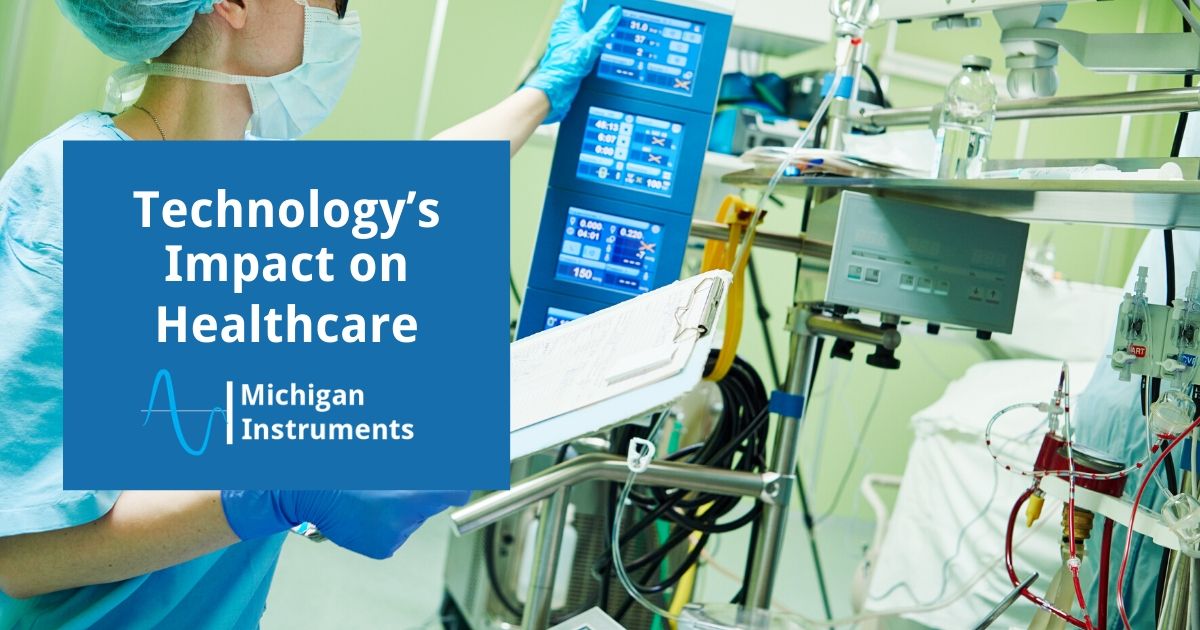Technology’s Impact on Healthcare and How Michigan Instruments Responds
Over the years, technology has brought about a drastic and welcome change to the healthcare industry. It’s one of the major reasons patients have access to leading diagnostic tools and cutting-edge treatments. In addition, it’s made life easier for healthcare providers throughout the country.
At Metro Health- University of Michigan Health, for example, radiologists are now using FDA-approved ProFound, an artificial intelligence product to significantly improve breast cancer detection. Through the revolutionary software, doctors can catch breast cancer tumors at a more accurate level and reduce false positives as well as the need for additional patient testing. Believe it or not, it can find malignant and nonmalignant tumors at a higher rate than humans can.
Another great example of how technology has revolutionized healthcare can be seen with Atomwise, a company that develops artificial intelligence systems. They partnered with the University of Toronto and IBM and found drugs that could be repurposed and used to treat the Ebola virus, which is a deadly condition that leads to fever and body aches.
As concerns about the spread of the Coronavirus continues to rise, research is already being done to see how AI could fight future outbreaks like this. This article from Bloomberg highlights how AI or machine learning can be used alongside human researchers to feed, test and optimize algorithms to identify potential new treatments using existing drugs.
Also, artificial intelligence (AI) is being used in conjunction with wearables to enable doctors and caregivers to monitor and oversee those in early stages of heart disease. This allows them to detect life-threatening episodes at earlier points in time. With early detection comes more effective treatment and increased survival rates.
It’s no secret that the use of mobile apps and other interactive tools are increasingly used to track, monitor and report back to an individual or their healthcare provider. Whether for weight loss, weight management, diabetes management, insulin monitoring and management of other chronic diseases, their use will continue to grow as technology evolves.
How Technology Has Changed the Use of Our Devices
Here at Michigan Instruments, we have seen technology impact the way our medical devices are being used. It has opened the doors to countless opportunities for healthcare providers, professors, researchers, and product development engineers.
Time after time, researchers use our test lung simulators and accessories like the breath and head simulation modules to develop new respiratory care devices and treatments. The PneuView Software has seen updates and upgrades developed based on customer uses and requests, too. We continue to interact with our users and prospective users to drive product development for tomorrow’s respiratory professionals.
And while treatment of cardiac arrest has continued to change with added technology like AED devices, the fundamentals of quality CPR cannot be ignored. Many emergency professionals outside and inside hospital settings choose our automated CPR devices to deliver consistent, uninterrupted compressions to cardiac arrest patients, while they focus on other lifesaving treatments.
Not only have tech advancements in test lung simulators, automated CPR products, breath simulators, and head simulation modules improved patient outcomes, they’ve saved lives.
Learn More About Our Products
If you would like more information about our technologically advanced test lung simulator products and how you can use them to your advantage, contact us today or request more information here.




